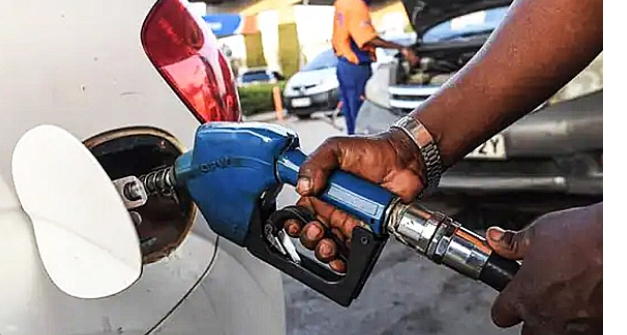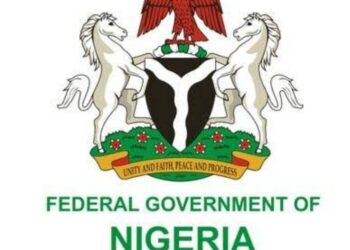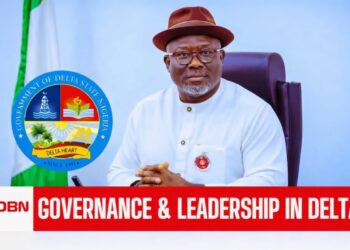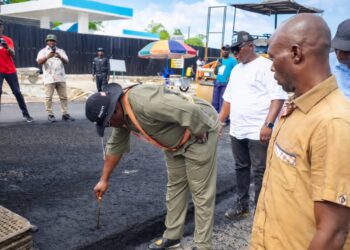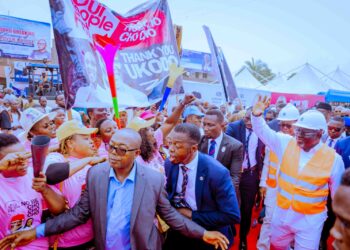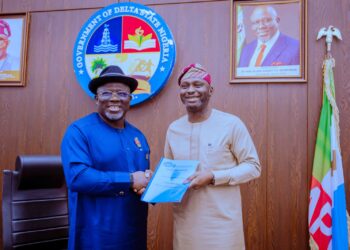8 May 2023
The national operations controller of the Independent Petroleum Marketers Association of Nigeria (IPMAN), Mike Osatuyi has disclosed that the ex-depot price of the product is now N479.50 per litre.
He added that a truck of 33,000 liters of petrol now costs N21.8 million, from N7.7 million, noting that marketers are finding it cumbersome to cover the cost.
“Marketers are not finding it easy because we are paying N7.7 million for one truck but are unable to carry it. So, you need an additional N13.8 million before you can get one truck of the product.”
Speaking on the new pricing for the commodity, Osatuyi said the amount will fluctuate and vary in response to market realities. He said pricing now depends on the crude price, which can swing “up or down.
“Crude price is now $76 to a barrel and it has to do with the exchange rate. That is still not clear when the president said the black market and the official market will be unified.”
Also, the national president of the Petroleum Products Retail Outlets Owners Association of Nigeria (PETROAN), Billy Gillis-Harry, said the difference between the old ex-depot price and the new one is significant. He said members are finding it hard to pay, as it would “come at a great cost.”
Already, the volume of average daily sale at petrol stations across Lagos is dropping as Nigerians buy less fuel than they bought before last week’s price adjustment.
Before the subsidy removal, the government had stated that Nigerians consumed as much as 62million litres of petrol daily, although the figure had always been discredited as inflated.
Founder of ANAP Foundation, Atedo Peterside, yesterday said: “Let us watch NNPC limited daily consumption figures collapse as the component parts of the old figures were –real domestic consumption, petrol smuggled across the border and none-existent petrol that only existed because it was assigned to bogus subsidy claims.”
The Group Managing Director of NNPC, Mele Kyari, said last week that he expected petrol consumption in Nigeria to fall by as much as 30 per cent following the price adjustment.
Oil marketers say it might be too early to get an accurate indication of how low average daily sales will drop, but they admit that sales have generally been falling since the subsidy was removed.
MEANWHILE, the hope of the organised labour movement to persuade the Federal Government to divert the $800 million loan facility obtained from the World Bank’s International Development Association (IDA) meant to be distributed to about 50 million poor Nigerians, has hit a brick wall.
This is part of the fallouts of the negotiation between organised labour and the Federal Government in Abuja over petrol subsidy removal. It was gathered that the World Bank, in total compliance with the terms of the agreement with the Nigerian government, is insisting that the loan cannot be deployed to fund another intervention aimed at cushioning the effects of the removal of subsidy on petrol.
The terms of the loan are the reason the $800 million cannot be deployed to other areas of intervention. For example, the Federal Ministry of Finance, Budget and National Planning is expected to spend $23.3 million on consultancy fees, hiring of staffers, and payment for logistics such as training and workshops out of the $800 million loan facility to mitigate the effects of removal of petrol subsidy on 50 million poor Nigerians.
The Guardian reported that the agreement between the Ministry of the International Development Association (IDA) tagged ‘Financing Agreement (National Social Safety Net Program – Scale Up) between the Federal Republic of Nigeria and International Development Association (IDA) entitled ‘Credit Number7019-NG – Public Disclosure Authorised’, prescribes that the ministry is expected to establish a National Social Safety Nets Coordinating Office (NASSCO), which means doing away with the officials of the federal ministry of humanitarian affairs who have been trained to carry out similar tasks.
In the agreement, which was signed on August 16, 2022 by the former Minister of Finance, Budget and National Planning, Mrs. Zainab Ahmed, and Nigeria’s Country Director of the World Bank, Shubham Chaudhuri, section 1.2 sub-section (a) partly reads: “The Recipient shall maintain, throughout the implementation of the Project, a National Social Safety Nets Coordinating Office (NASSCO) in FMHADMSD with functions and resources satisfactory to the Association, and with staff in adequate numbers and with terms of reference, qualifications, integrity and experience satisfactory to the Association.”
The Nigeria Labour Congress (NLC) and its Trade Union Congress (TUC) counterpart had, during the parley with the Federal Government on Monday, attempted to persuade the Federal Government team to divert the loan into funding the Compressed Natural Gas (CNG) fuel option for car owners as well as commercial operators.
NLC President, Joe Ajaero, in opposing the money for distribution to the poorest of the poor, faulted the register of the beneficiaries.
“We are totally opposed to the distribution of N5, 000 for 10 million households or 50 million Nigerians to alleviate the effects of the removal of subsidy on petrol. That is an insult to Nigerians. How do you identify the beneficiaries?
“So, out of 133million Nigerians that are multidimensional poor, the Federal Government will borrow money that is close to one billion dollars to pay N5, 000 to 50 million people. How does that make sense? What happens to the other 73 million other Nigerians that are multidimensionally poor? We think that any intervention that will be done has to be to the best interest of the majority of the people.”
Meanwhile, another matter that was tabled before the meeting was the revival of the Central Bank of Nigeria (CBN) N250 billion CNG project. The Guardian learnt that the agency of government that should manage the fund was at the centre of controversies, which halted the implementation.
The Federal Government had claimed that the intervention facility will stimulate finance and motivate investors in the gas value chain for sustainable business development in the country.
The Guardian had exclusively reported that the agreement between the Ministry of the International Development Association (IDA) tagged ‘Financing Agreement (National Social Safety Net Program – Scale Up) between the Federal Republic of Nigeria and International Development Association (IDA) entitled ‘Credit Number7019-NG – Public Disclosure Authorised’, prescribes that the ministry is expected to establish a National Social Safety Nets Coordinating Office (NASSCO), which means doing away with the officials of the federal ministry of humanitarian affairs who have been trained to carry out similar tasks.
In the agreement, which was signed on August 16, 2022 by the former Minister of Finance, Budget and National Planning, Mrs. Zainab Ahmed, and Nigeria’s Country Director of the World Bank, Shubham Chaudhuri, section 1.2 sub-section (a) partly reads: “The Recipient shall maintain, throughout the implementation of the Project, a National Social Safety Nets Coordinating Office (NASSCO) in FMHADMSD with functions and resources satisfactory to the Association, and with staff in adequate numbers and with terms of reference, qualifications, integrity and experience satisfactory to the Association.”
The Nigeria Labour Congress (NLC) and its Trade Union Congress (TUC) counterpart had, during the parley with the Federal Government on Monday, attempted to persuade the Federal Government team to divert the loan into funding the Compressed Natural Gas (CNG) fuel option for car owners as well as commercial operators.
NLC President, Joe Ajaero, in opposing the money for distribution to the poorest of the poor, faulted the register of the beneficiaries.
“We are totally opposed to the distribution of N5, 000 for 10 million households or 50 million Nigerians to alleviate the effects of the removal of subsidy on petrol. That is an insult to Nigerians. How do you identify the beneficiaries?
“So, out of 133million Nigerians that are multidimensional poor, the Federal Government will borrow money that is close to one billion dollars to pay N5, 000 to 50 million people. How does that make sense? What happens to the other 73 million other Nigerians that are multidimensionally poor? We think that any intervention that will be done has to be to the best interest of the majority of the people.”
Meanwhile, another matter that was tabled before the meeting was the revival of the Central Bank of Nigeria (CBN) N250 billion CNG project. The Guardian learnt that the agency of government that should manage the fund was at the centre of controversies, which halted the implementation.
The Federal Government had claimed that the intervention facility will stimulate finance and motivate investors in the gas value chain for sustainable business development in the country.. guardian

